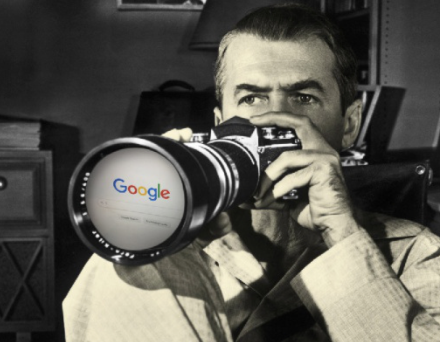My editor, Michelle, was at a birthday party for her son’s friend when another mom mentioned a company she liked, Joymode.
我的編輯米歇爾在她兒子朋友的生日聚會上,另一位母親提到了她喜歡的公司Joymode。
Minutes later, an ad for Joymode appeared on Michelle’s Facebook news feed.
幾分鐘后,Joymode的廣告出現在米歇爾的臉書新聞推送上。
You may already know that every time you like a post, leave a comment, or tag a friend, that gives Facebook even more ammunition to serve up targeted ads.
你可能已經知道,每當你喜歡一個帖子,留下一個評論,或者標記一個朋友,這就給臉書提供了更多的信息來投放有針對性的廣告。
But is Facebook listening to our conversations too? “We don’t look at your messages; we don’t listen in on your microphone.
但臉書也在聽我們的對話嗎?“我們不看你的信息;我們沒在聽你的麥克風。
Doing so would be super problematic for a lot of reasons,” said Adam Mosseri, CEO of Instagram, which is owned by Facebook, in a CBS interview.
這么做會有很多問題,”臉書旗下照片墻的首席執行官亞當·莫塞里在接受CBS采訪時說。
The truth is, Facebook tracks us in ways we don’t even realize and is so good at it that we think it’s monitoring our conversations.
事實是,臉書以我們自己都沒有意識到的方式跟蹤著我們,它如此擅長于此,以至于我們以為它在監控我們的談話。
Instead, it uses sophisticated demographic and location data to serve up ads.
相反,它使用復雜的人口統計和位置數據來投放廣告。
If you use Facebook to sign into other websites, that gives them even more data about you.
如果你使用臉書賬號登錄其他網站,他們會獲得更多關于你的數據。
So that’s one easy habit to stop right away.
所以這是一個很容易立即停止的習慣。
Gmail has been more important to me than any product I’ve ever owned.
對我來說,Gmail比我曾經擁有的任何產品都重要。
It’s where my wife and I first started flirting and where, 14 years and two kids later, we send jokes and Gchat-length love notes.
我和妻子第一次調情就是在Gmail中。14年過去了,我們有了兩個孩子,我們在這里發送笑話和Gchat長短的愛的短信。
It was the center of my professional life for years.
多年來,它一直是我職業生涯的中心。
It contains the contact information of pretty much everyone I’ve ever known,
它包含了幾乎所有我認識的人的聯系信息,
plus a decade and a half of credit card bills, tax returns, embarrassing pictures, bad jokes, and apologies for those jokes.
還有十五年的信用卡賬單,納稅申報單,尷尬的照片,糟糕的笑話,以及為那些笑話道歉。

But stories about tech companies’ violations of privacy got me thinking about a scenario that once seemed unimaginable: life without Gmail.
但有關科技公司侵犯隱私的報道,讓我想到了一個曾經似乎難以想象的場景:沒有Gmail的生活。
Google, after all, has been repeatedly accused of improperly collecting user data.
畢竟,谷歌已經多次被指控不當收集用戶數據。
Last year, it paid $13 million to settle a class action lawsuit about its Street View program’s scooping up personal information from people’s home Wi-Fi networks.
去年,谷歌支付了1,300萬美元解決了一起集體訴訟,該訴訟涉及其街景項目從人們的家庭無線網絡中竊取個人信息。
(It denied any wrongdoing.) And yet, I was still giving it the entirety of my inbox.
(該公司否認有任何不當行為。)然而,我的收件箱里滿滿地都是。
This spring I started telling friends, family, and coworkers to send e-mail to a new address, hosted by my own personal server.
今年春天,我開始告訴朋友、家人和同事把電子郵件發送到一個新的地址,這個地址由我自己的個人服務器托管。
For searches, I started using DuckDuckGo, a Google competitor that doesn’t collect user data.
在搜索方面,我開始使用DuckDuckGo,它是谷歌的競爭對手,不收集用戶數據。
I realized I’d been self-censoring my e-mails for years,
我意識到多年來我一直在自我審查自己的電子郵件,
keeping certain thoughts out of even personal correspondence due to a fear that they might wind up in a hack, or a lawsuit, or some advertiser’s data dump.
即使是在私人信件中,也不要讓某些想法出現,因為擔心它們可能會被黑客攻擊,或擔心被起訴,或擔心被一些廣告客戶的數據轉儲。
The experience of having my data sitting only in a little box on my desk was weirdly thrilling.
把我的數據放在我桌子上的一個小盒子里,這種經歷讓我異常興奮。













